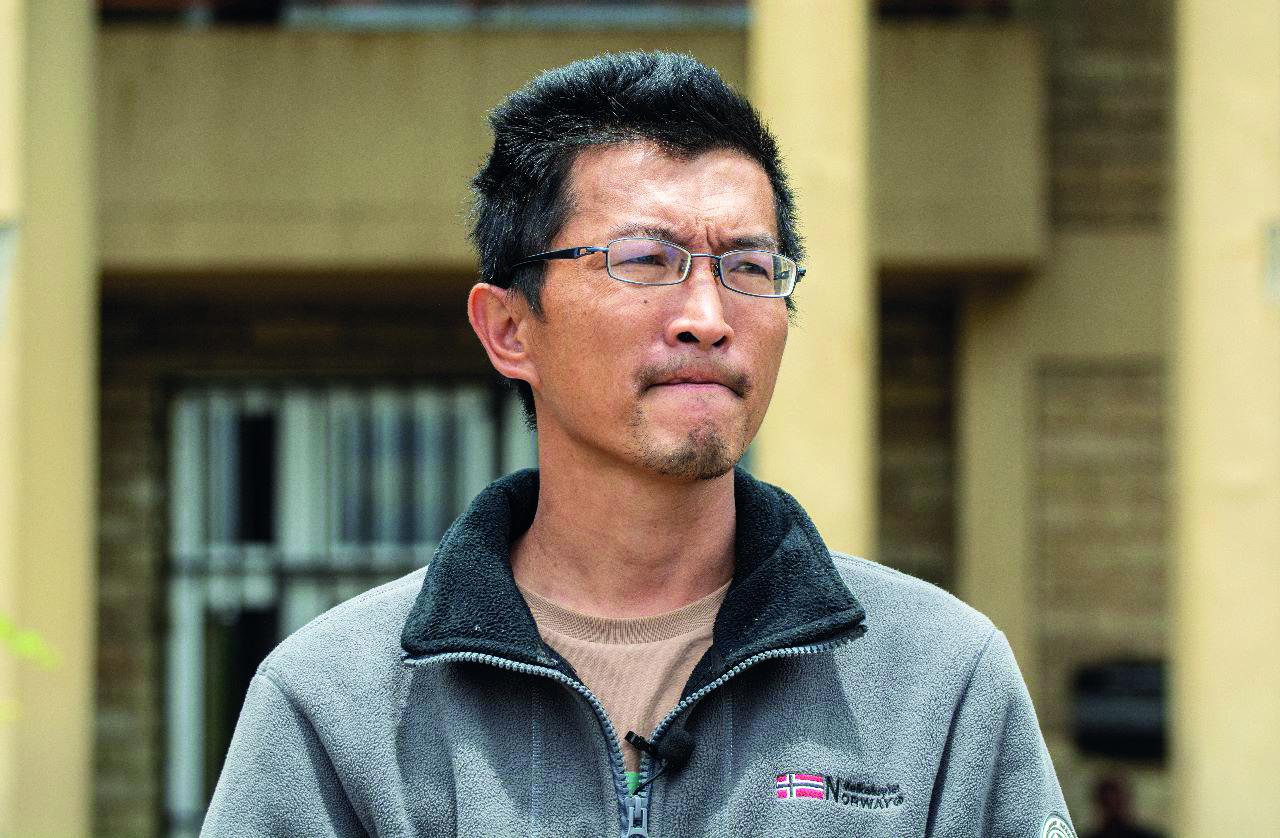Africa-Press – Lesotho. A case in which a Chinese businessman allegedly assaulted a fellow countryman last month could open a can of worms regarding the relations between Basotho and businesspeople from the Asian countries.
Huang Liang appeared before the Maseru Magistrate’s Court in December last year charged with assaulting fellow Chinese businessman Youming Chen. He was remanded out of custody on a M1 000 bail.
Huang allegedly assaulted his fellow Chinese landlord for supporting a business owned by a Mosotho instead of his. The landlord, Youming Chen, owns a business complex in Roma where Huang and several other Basotho are tenants.
Huang is running a restaurant competing with a Mosotho’s in the same complex. The case is yet to be heard in the Maseru Magistrate’s Court. The case, though pitting two Chinese businessmen, has put the spotlight on relations between locals and foreign business owners, particularly of Chinese origin.
Youming, the victim of the alleged victim, owns a business complex in Roma, where Huang and several Basotho are tenants. Youming claimed to thepost that Huang assaulted him for helping Basotho businesspeople compete against a fellow Chinese.
According to Youming, Huang called him one Saturday night to come to the complex. “He told me that my building did not have electricity and therefore I should come and check,” Youming said.
He said when he arrived at the building around 1am, Huang lured him into the shop. “When we entered the shop, he pushed me and locked the door. ” He said Huang asked him why he was supporting Basotho businesses instead of his fellow Chinese.
“He started beating me and said I had nowhere to run to.
” Youming said Huang beat him severely and kicked his private parts.
The case comes amid growing tensions between Basotho business people and their Chinese competitors. Locals allege unfair competition is pushing them out of business.
Teboho Modona, who runs a nightclub in Roma, less than a kilometre from the National University of Lesotho (NUL), says he started operating in the area in October last year.
He runs the nightclub at a building belonging to a Chinese businessman. When he first arrived at the place, he said he found another Chinese man running a restaurant.
“And that rival Chinese man slashed his drinks prices as a way to attract clients to him. I did not decrease mine, instead I looked around on how I could stay afloat,” Modona said.
“My rival used to drink in my bar so I was surprised to hear that my competitor had fought the landlord asking him to kick me out of his business,” said Modona. Their case is still pending in court.
Poloko Rantho, 55, from Mathebe Mafeteng said he has been operating a small shop for the past ten years and his business was generating enough profits to keep the wolves off the door.
But today things have changed. Rantho said his business is in financial distress because of “unfair and stiff competition” from Chinese competitors. “He sells at ridiculously low prices.
This makes the customers run away from me,” lamented Rantho, adding that his stock sometimes takes months on the shelves without being bought. “I make a huge loss on perishable goods such as fruits and vegetables.
I hardly sell anything,” he said. Rantho said people only buy from his shop when his competitor has not yet opened since he starts trading at 10am. Rantho said Basotho would waylay the Chinese man from Mafeteng where he stays and start buying goods before he even reaches the shop.
“He sells goods from his car on the way to the shop. Customers in the villages through which he passes line up for the Chinese man,” Rantho said. Even vendors say they are not spared.
Matšeliso Lefane, 34, who sells fruits as a street vendor in Mafeteng, said they are suffering because of unfair competition from the Chinese. The mother of two said she buys the fruits from Chinese shops, but unfortunately the same shops also sell to individuals who are supposed to be customers of vendors.
“We were hoping the Chinese would only sell in bulk. When we sell an apple for M3, the Chinese sell it at M2,” Lefane said. Another street vendor, Vuyisile Masia, 27, who is the deputy secretary-general of Micro-Small Enterprise Association in Mafeteng, also cried foul.
“Unfair competition is killing us,” said Masia, who sells clothes, cosmetics and other small items at his small shack in Mafeteng town.
Masia says they embarked on a strike in October last year asking the relevant authorities in the district to intervene. “We are waiting to hear the progress from the District Administrator,” he said.
“We complain about the unfair competition because we buy from the very same Chinese who are pushing us out of business.
It is their legitimate expectation that the Chinese would give them a chance to sell their products without any competition because they buy from them.
“We have been told that there is no law that protects us as street vendors against the Chinese. We have been told that the Bill is still in Parliament,” he complained.
Chinese started off by operating in towns then slowly moved to remote areas, conquering the market with cheap prices, drastic cost-cutting measures and bulk-buying through deep-pocketed syndicates.
Now the Chinese retailers are all over the country, selling anything from bread to alcohol. Across the country there are sad stories of business people who shut their shops as soon as Chinese retailers landed in their area.
Chief Thato ’Mako Mohale of Tajane said they are not against a law that protects local businesspeople. He said the Bill should state and show the penalties to be imposed on businesses that breach the law.
“So the legal department of the ministry has to deal with that irregularity,” said the Chief. Last year, there was a tense standoff between Mafeteng street vendors and foreign investors running big shops like supermarkets.
The spokesperson of the street vendors in the district, Vuyisile Masiea, told this publication that they are getting tough and unfair competition because the Chinese sell
“small items that are supposed to be sold by us”.
“They squeeze us out of business. The sad reality is that the Chinese are found even in the hard to reach areas of the country,” he said.
The founder and leader of Micro-Small Enterprise Association, Thobi Motlere, said the government should protect local businesspeople. “We have already written two letters to the new minister to intervene.
We will not rest. We are taking our battle further,” Motlere said. Trade Minister Mokhethi Shelile said there are laws in place that have to be implemented to protect locals.
“What we have to do is to enforce the laws,” Shelile said.
For More News And Analysis About Lesotho Follow Africa-Press






